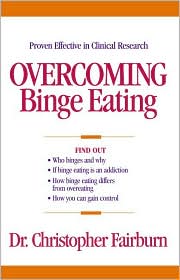12 Week Self-Guided Program For Binge Eaters Has Positive Results
 A new study found that a self-guided, 12-week program can help binge eaters stop binging for up to a year or more depending on the person. The program is also designed for individuals who do not have insurance or a large account at their dispose. The cost to stat the program as it is a self-help and self-guided program is the cost of the book. Individuals who participant in binge eating practices are among many. Binge eating disorder is the most common eating disorder in the country. Affecting about nine million people. And yet, there are limited treatment options for this eating disorder.
A new study found that a self-guided, 12-week program can help binge eaters stop binging for up to a year or more depending on the person. The program is also designed for individuals who do not have insurance or a large account at their dispose. The cost to stat the program as it is a self-help and self-guided program is the cost of the book. Individuals who participant in binge eating practices are among many. Binge eating disorder is the most common eating disorder in the country. Affecting about nine million people. And yet, there are limited treatment options for this eating disorder.
Binge Eating
“People who binge eat more than other people do during a short period of time and they lose control of their eating during these episodes. Binge eating is often accompanied by depression, shame, weight gain, loss of self-esteem and it costs the healthcare system millions of extra dollars,” said the study’s principal investigator Ruth H. Striegel-Moore, PhD, a professor of psychology at Wesleyan University.
“Overcoming Binge Eating” by Dr. Christopher Fairburn
“Our studies show that recurrent binge eating can be successfully treated with a brief, easily administered program, and that’s great news for patients and their providers.” Stated Ruth H. Striegel-Moore, PhD.
The book “Overcoming Binge Eating” by Dr. Christopher Fairburn provides the reader with a source of scientific information about binge eating and then outlines a six-step self-help program using self-monitoring, self-control and problem-solving strategies.
The Study
Individuals in the study went to eight therapy sessions over the course of 12 weeks in which counselors explained the basis for cognitive behavioral therapy and helped the individuals apply the strategies in the book.
The Results
“By the end of the 12-week program 63.5 percent of participants had stopped binging, compared to 28.3 percent of those who did not participate. Six months later, 74.5 percent of program participants abstained from binging, compared to 44.1 percent in usual care. At one year, 64.2 percent of participants were binge free, compared to 44.6 percent of those in usual care.”
 Eating Disorder Self Test. Take the EAT-26 self test to see if you might have eating disorder symptoms that might require professional evaluation. All answers are confidential.
Eating Disorder Self Test. Take the EAT-26 self test to see if you might have eating disorder symptoms that might require professional evaluation. All answers are confidential.